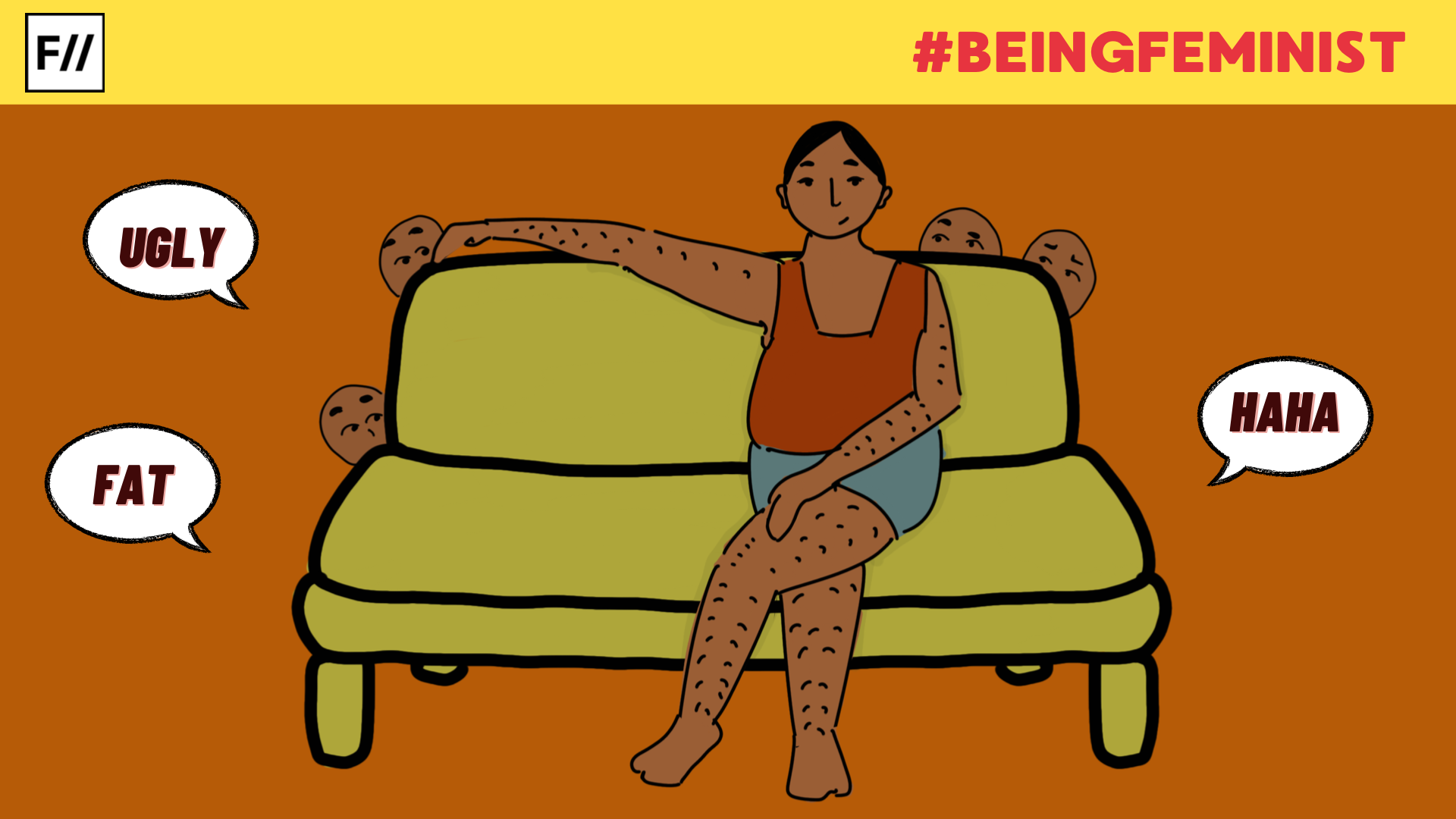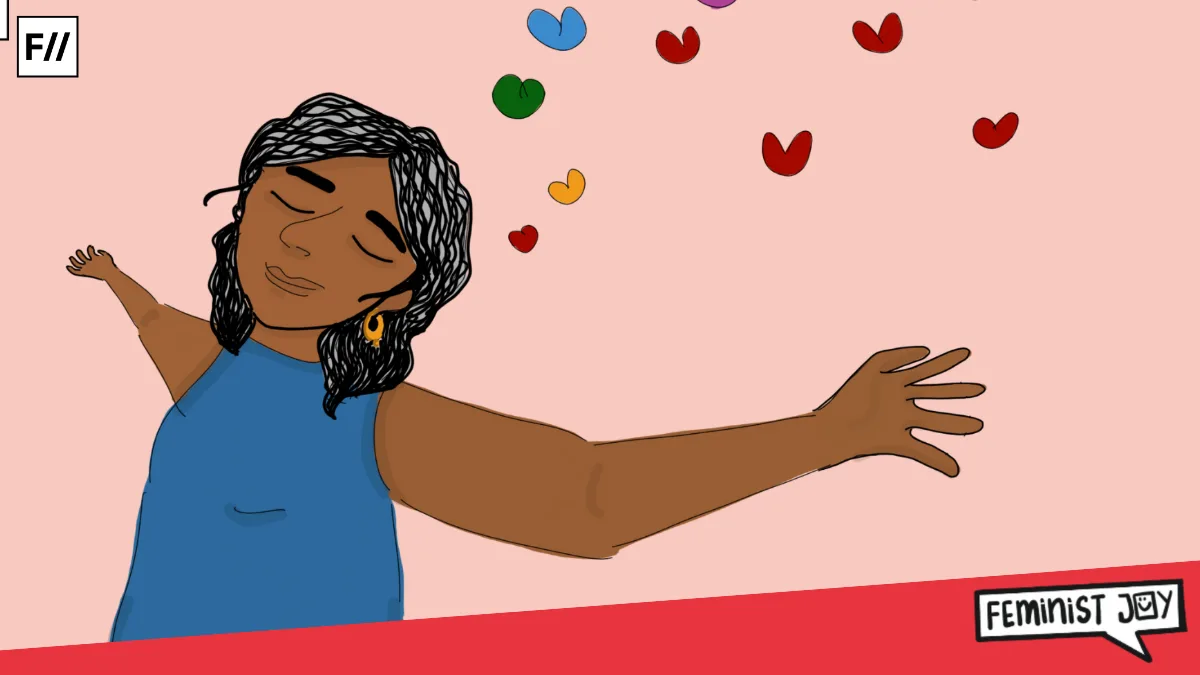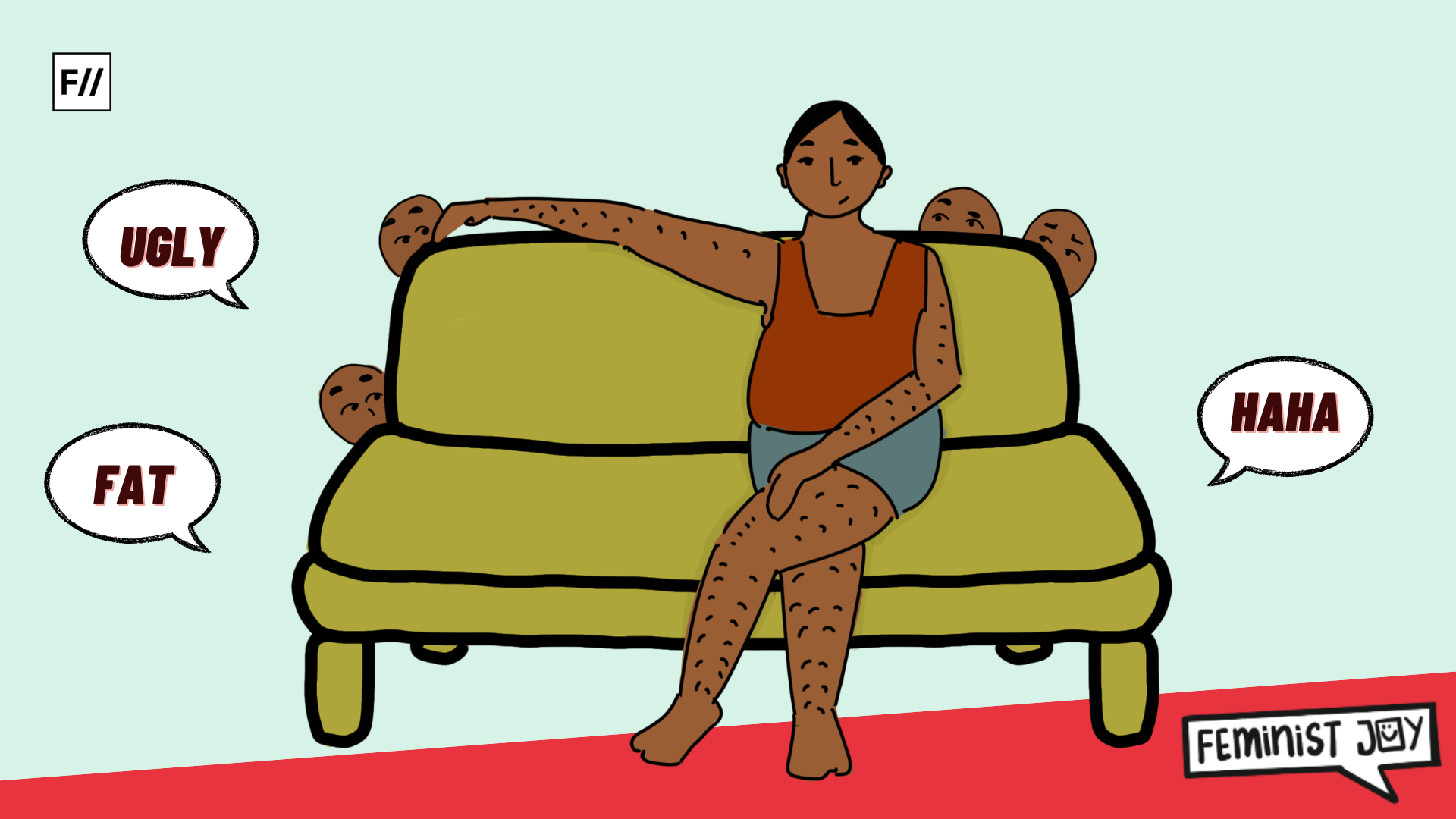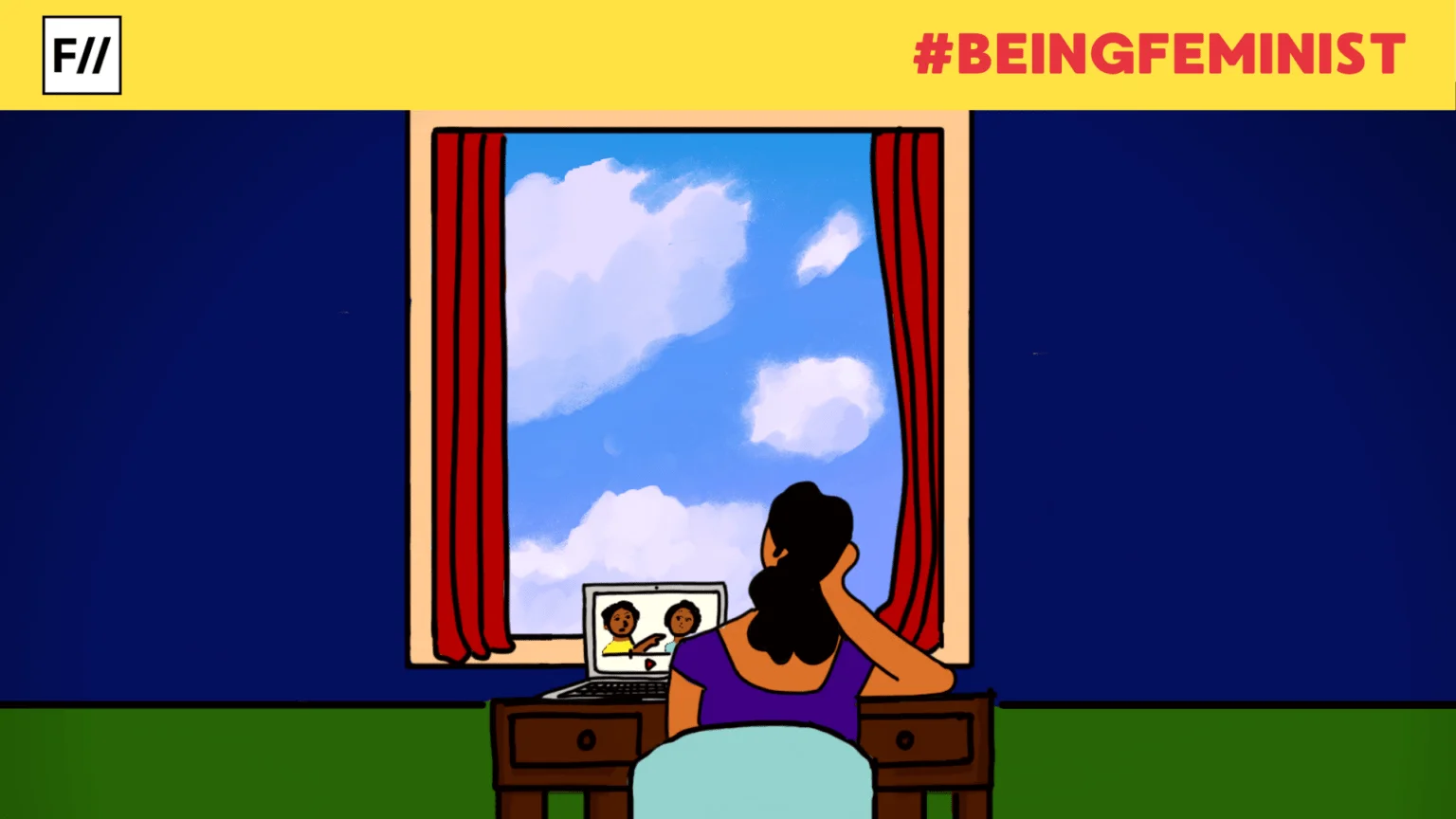Editorial Note: Being Feminist is a fortnightly column that features personal narratives documenting the emotions, vulnerabilities and innermost contradictions every feminist encounters while trying to push through various degrees of patriarchy in private, professional and public spaces.
Body positivity in recent times has turned into a movement, with individuals identifying and calling out toxic behaviours and standards that shame women for eating, expect women to fit into unrealistic beauty standards that change like trends and for propagating extreme diets. I have personally struggled and sometimes continue to struggle with my body and my relationship with it.
The climate around body positivity and acceptance has been chants such as “love yourself”, “be grateful for your body”, “every body is not the same”, and many more. Although this shift in attitude can be encouraging and motivational, it does not alter the fact that the journey of self-confidence and self-love is personal, and everyone takes their own time and path to reach the same, and should not be rushed to feel any certain way.
Most of us at some time or the other, have possibly looked in the mirror and made metal notes on what we wish we could change about ourselves. I know I have, and it was never a pleasant experience to criticise myself and wish to be different.
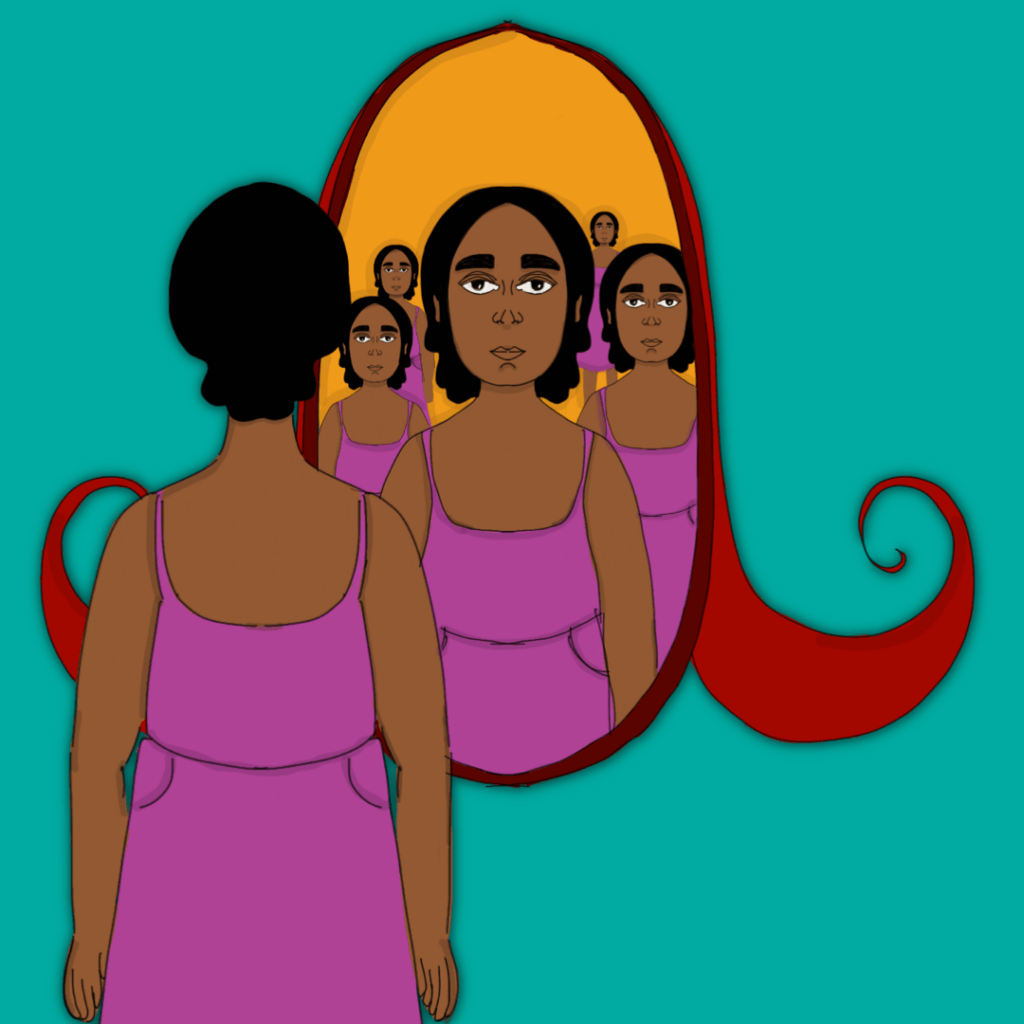
Self-love can be difficult at times, especially in the age of social media, which has recently become the conduit for the phenomenon of toxic positivity, where it is almost demanded that you love yourself. Many people on the internet have taken on the responsibility to inform all of us that we are beautiful just the way we are, and I do think that this is true, but this does not mean that I believe and feel it all the time.
Also read: ‘I Feel Like A Hypocrite When I Cringe At My Hairy Arms’: On Removing Body Hair While Being Feminist
I have come across many advertisements like those of Fair & Lovely, that endorse the idea that having a lighter complexion makes you beautiful, while I was growing up. My well meaning grandmother always seemed distressed when I played sports like football outside in the sun, as it would result in me tanning and she fervently believed that this made me less beautiful. She often made me take baths using turmeric in order to get my natural, lighter complexion back, and I followed her instruction since I wished to be beautiful in her eyes again and to please her
My anxiety and unease regarding my insecurities may not simply wash away due to compliments or empowering speeches, not that they are unwelcome, but simply that they are not a permanent or even temporary cure. This feeling, I thought, was cinematically captured well in the show ‘Euphoria’, where the character Kat who is deeply unhappy with herself, visualises a crowd of attractive women shouting at her to love herself, as she continually tells them that she does not.
The market takes full advantage of the unreasonable beauty standards that exist, and ensures to capitalise on the insecurities of women, through cosmetic products that promise to remodel you, clothes such as shapewear that can apparently transform you, and different supplements and foods that will help you lose a great deal of weight in record time.

Not only does the market take advantage of the existing beauty standards, but in many ways, it creates and feeds them too. The cosmetic cream Fair & Lovely, recently renamed itself to Glow & Lovely after major backlash regarding them perpetuating the message that being fair means being beautiful, and having a darker skin tone is not attractive. Its parent company Unilever acknowledged that the branding suggests “a singular ideal of beauty“.
The truth is sometimes, maybe even a lot of the time, we do not like the way we look or act or talk. We may feel shallow or pretentious or awkward, and that is truly okay. I think of times when I feel this way and am unhappy as a sort of ‘phase’, something that will eventually end, simply because it has to. Sometimes, we need to learn to carry on with the blind optimism that somewhere along the way things are bound to get better
A petition against this claimed that, “This product has built upon, perpetuated and benefited from internalised racism and promotes anti-Blackness sentiments,” while another says that the cream “tells us that there is something wrong with our colour, that we have to be light in order to feel beautiful. In order to feel worthy.”
I have come across many advertisements like those of Fair & Lovely, that endorse the idea that having a lighter complexion makes you beautiful, while I was growing up. My well meaning grandmother always seemed distressed when I played sports like football outside in the sun, as it would result in me tanning and she fervently believed that this made me less beautiful. She often made me take baths using turmeric in order to get my natural, lighter complexion back, and I followed her instruction since I wished to be beautiful in her eyes again and to please her. Families in many ways, can influence our perceptions of beauty and thus, our value of self.
Phenomenon such as ‘food shaming’, which is when someone is shamed or made to feel guilty about what or how much they eat, can have detrimental effects such as causing an eating disorder and pushing individuals towards diet culture. The weight of diet culture wears heavy on those that experience it.
Da La Cretaz says that women who do not fit into the idealised standard of beauty of society, are typically the ones that are victim to such taunts. Most times, these comments shared by men sometimes when they are in groups, are usually passed off as harmless humour. However, this apparent humour is not necessarily harmless. Such comments can pile up and be very damaging.

I once experienced an uncle of mine make a joke about my weight gain in front of many family members, and when he saw that I was clearly uncomfortable, he felt the need to continue the joke, as if he could not stop until he got a positive reaction from me that would absolve him of his insensitivity.
I did not laugh at any of his jokes, as he targeted my insecurity, and I also did not enjoy eating dinner that night. Over the years, I feel as though I have established a healthier relationship with my body and have allowed myself to enjoy food without guilt. This is an ongoing journey and sometimes, I do hit bumps along the way.
The truth is sometimes, maybe even a lot of the time, we do not like the way we look or act or talk. We may feel shallow or pretentious or awkward, and that is truly okay. I think of times when I feel this way and am unhappy as a sort of ‘phase’, something that will eventually end, simply because it has to. Sometimes, we need to learn to carry on with the blind optimism that somewhere along the way things are bound to get better.
Also read: ‘I Am A Feminist And I Like Makeup’: Navigating Beauty Standards While Being Feminist
Featured Illustration: Ritika Banerjee for Feminism In India
About the author(s)
Naureen is passionate about social politics, sustainable development and impact-driven economics.
